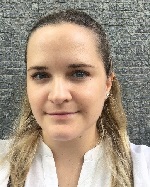ESTRO 2020, the same but different: views from a yESTRO old-timer - PDF Version
Much has happened since I went as a young radiation therapist to my first European SocieTy for Radiotherapy and Oncology (ESTRO) meeting, which was ESTRO 33 in Vienna in 2014. I attended every seminar, talk and session that I could over the four days and arrived home in London completely exhausted. I have fond memories of that meeting: the amazing work and discoveries that were being performed by people who sat next to me in the auditorium, coffee from the exhibition stand in the exhibition hall, gaining advice from vendors about radiotherapy solutions, chatting to people from all over the world, reviewing posters with a glass of wine. ESTRO 2020 was different for many reasons: first, I was a presenter for the first time as I gave a short talk in the young track to report back on an ESTRO mobility grant-funded trip to Toronto in 2019; and second, of course it was a fully online event due to the COVID-19 pandemic. However, I still reviewed the posters over a glass of wine at home!
Real excitement was building in the radiation oncology community on Twitter in the run-up to the congress; it felt like our own festive season was approaching. After everything that had happened in 2020, the ESTRO conference represented the return of something we knew and gave us reason to celebrate again. So many fantastic talks were scheduled, and I still found myself printing the programme and highlighting each session of interest, like I had in the old times. When I highlighted more than one item that was scheduled for presentation at the same time, I got frustrated trying to pick which one to attend. Then I realised that this year truly was different; I did not actually have to pick at all. All sessions were online and pre-recorded, and therefore accessible at any time.
.jpg.aspx)
My ESTRO set-up at home
I floated from track to track without having to leave my couch, listening to clinical talks on the management of pancreatic cancer, physics sessions on intra-fraction motion management, and radiotherapy talks on adaptive radiotherapy on the MR-Linac. I learned some interesting tips from the session entitled communication in professional life in the young track. I was unfortunate to miss the live stream of the young networking session – however, once again, the special situation of this year means that at least I can still access a recording of it days after the closing ceremony!
It was more difficult to take part in organic networking at the congress this year. I missed the chats with heads of departments in the coffee queue, and with physicists and well-known researchers from around the world; those small unplanned interactions that could be nothing more than enjoyable small talk, or the beginning of a research collaboration. I missed that human element and felt at some points that I had spent hours and hours in front of my PC without getting up or talking to another person. Viewing academic posters in the online format just was not the same as examining them in person with the ability to speak to the authors.
All in all, I am glad to have been able to attend ESTRO 2020, that the community could come together to bring positivity to close this difficult year, and that an online format could be so advantageous. However, I do hope that we can return to a more in-person format in the next year or two, if only for the coffee queue conversations and poster viewing chats.

Mairéad Daly
Postgraduate researcher
University of Manchester
Manchester, UK
mairead.daly@postgrad.manchester.ac.uk
Twitter: maireaddaly15